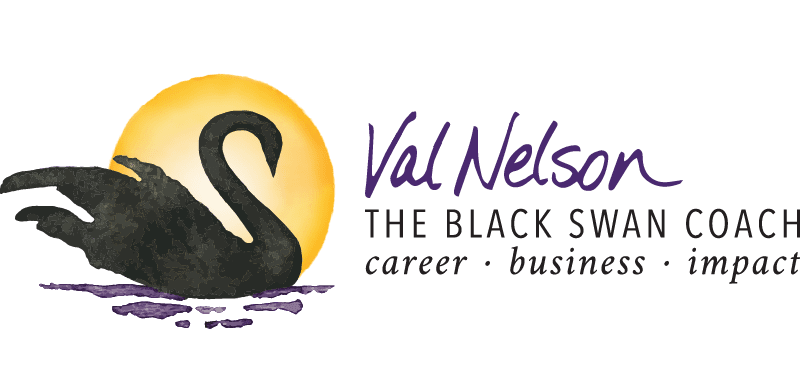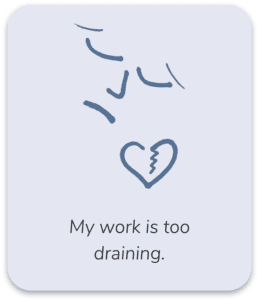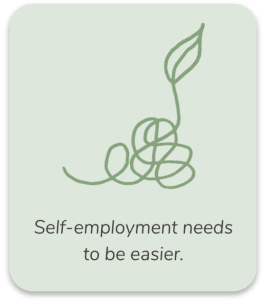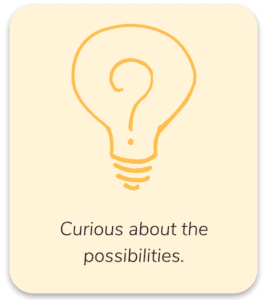Here are some assessment resources for exploring your strengths, interests, and personality, and how to match that to your career and life decisions. A career assessment tool or personality quiz is not enough by itself to tell you your career path, but it’s one tool to support the process. More career assessment ideas below.
The Limits of Assessment Tools
 Assessment tools are very limited in their usefulness by themselves because they don’t consider all of you and your needs.
Assessment tools are very limited in their usefulness by themselves because they don’t consider all of you and your needs.- Assessments can certainly give you insights into particular areas, but it’s tough to apply what you learn unless it’s discussed with someone who knows you and understands these tools, such as a career or business coach.
- Assessments like these should never be used to put yourself or someone else in a box. We are more than a “type.”
Free Online Assessments and Tools
- Are You an Introvert, Extrovert or Ambivert? – I think this is one of the most important things you need to know about yourself.
- Are You a Highly Sensitive Person? – A misunderstood trait that can be confused with introversion. I have found it to be a critical thing to understand about myself. It’s NOT the same as emotionally sensitive.
- Sparketype – In a simple quiz, you’ll find out your archetype for what truly sparks you and what really drains you. The reports you get are easy to understand. (It’s also a fun conversation piece with friends.) My clients and I have found this quite useful. New in 2021.
- Multiple Intelligences: What Is Your Learning Style? – This gives you a window into the many types of intelligences there are, and where you feel most at home.
- O*Net Online – Provides many tools for exploring job ideas (by keywords, categories, strengths, etc.). There’s a simple Interest Profiler to help you match up your strengths to job ideas. Job listings indicate which jobs are currently in demand based on U.S. Department of Labor statistics. No listing of jobs is definitive, by any stretch, but it makes a good research tool for getting started.
- 5 Love Languages – While not specific to career discovery, this is a fun one for clarifying how you relate to others. Find out what kinds of interactions warm your heart most. (A great tool for couples, friends, or colleagues to understand each other better.)
- VIA Character Strengths – Free version and paid versions available. The report is not exactly your classic strengths, but more like character and values, which is very useful for self-awareness and career/life decisions.
Formal Assessments (with a fee)
Among assessment tools, the most useful ones are well-researched and administered by a professional who can help you interpret the results. I recommend considering these to boost your exploration process.
Among thousands of profile tools available, these are some of the most popular ones today. I recommend discussing the options with a professional who is familiar with them. As to which one is most useful to you, it depends on your needs.
- CliftonStrengths (formerly StrengthsFinder) – I like this one for finding both the words and the validation of your natural talents and how to maximize your strengths. It’s a good confidence boost when you can finally let go of those things you think you should be doing that just aren’t you. The fee for the full 34 report is worth it. (Just getting your “top 5 talents” is just a taste, and you’d be missing out on some gold.)
It’s important to talk it through with someone who understands the results. Understanding your strengths can open up whole new worlds! - Strengths Profile – For using an assessment tool on your own, this is probably a better option than CliftonStrengths because the report is easier to understand. The low-budget introductory profile is good enough, and do ask for the Career report that can come with it.
- Myers-Briggs Type Indicator (MBTI) – This is one of my favorites. It helps you see where you roughly land on a spectrum of important temperament ranges. It opened my eyes in a life-changing way. It helped me understand the strengths within my introversion and other temperaments. This in turn helped me choose the right career direction that fit with my nature. It tends to help people relax and honor themselves as they are, and work with their nature instead of against it. (You can find a good free version of MBTI online but it’s considered to be accurate only if discussed with a professional.)
- Enneagram (9 Personality Types) – Use the (low-cost) paid version for accurate results. It’s an effective tool for personal growth since it reveals your blind spots and your unique path of growth. It’s not a career tool, but it reveals things that can support or interfere with success. The Enneagram is only recommended in conjunction with professional interpretation, as the test is not accurate without further exploration, and the descriptions can be hard to understand at first. There’s a lot of depth to this tool. It’s not meant for light fun.
How To Actually Discover Your Best Career Path
 Many people think that taking an assessment or two is enough to determine your right path. Nope.
Many people think that taking an assessment or two is enough to determine your right path. Nope.
Assessments are meant to supplement a career discovery process, not do the whole job. They can be quite useful in the larger context.
Here’s some more help for finding your path:
- How To Find Your Right Career Path: Myths and Truths
- Career Clarity Course: Simple Steps to Uncover the Best Use of You
- Best Careers for Introverts, HSPs, and Other Sensitive Souls (Over 50 Ideas)
To Learn More About Career Assessments
- Your college career center or alumni office may offer career assessments and consults for you. (Typically it’s limited to basic info and job search assistance without digging in deeply.)
- Contact me.





